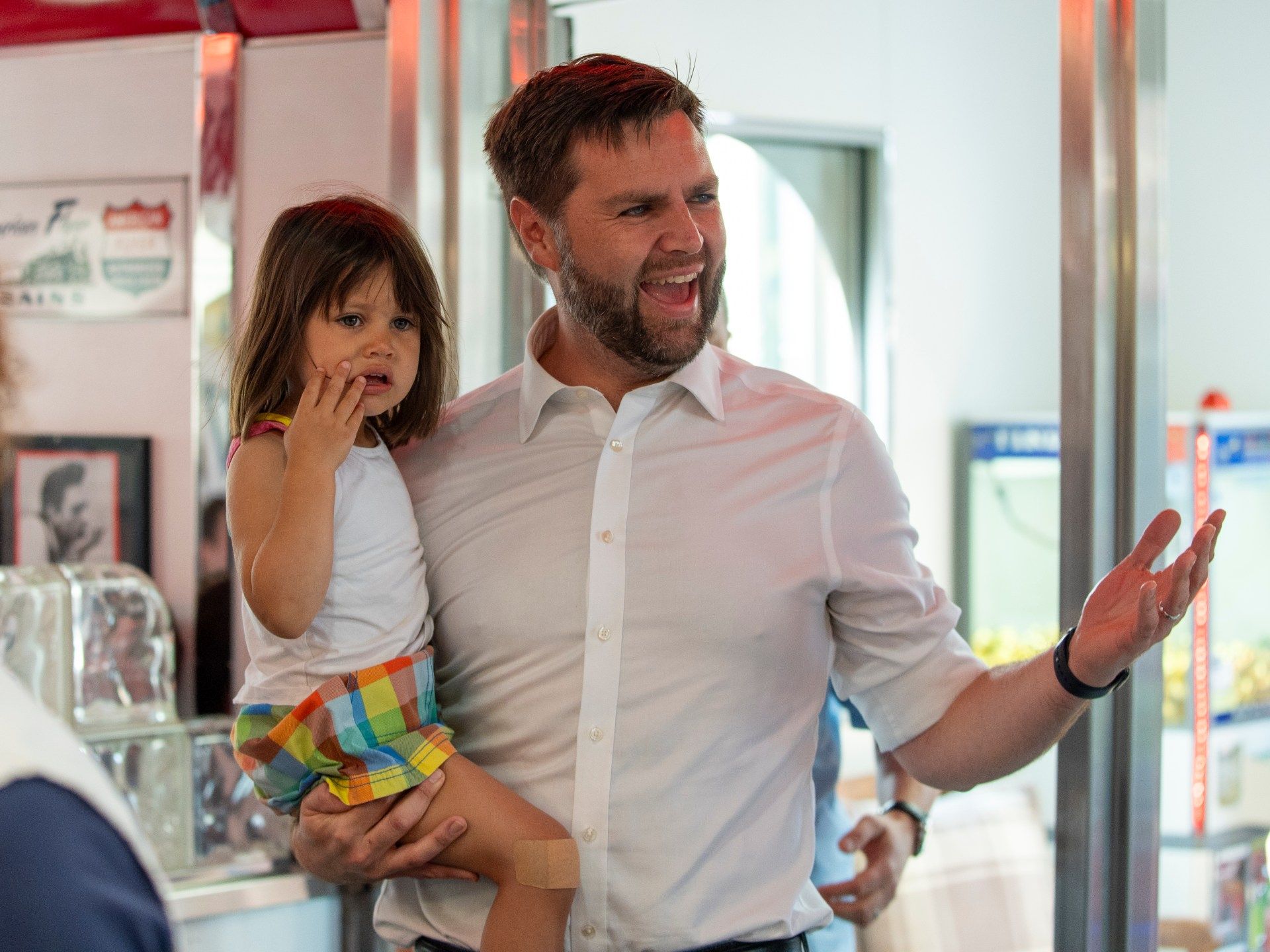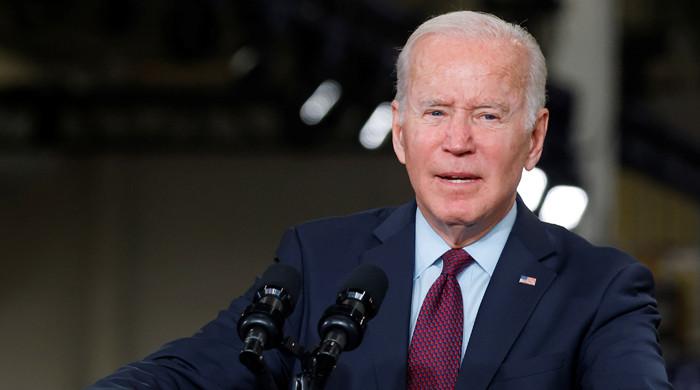Republican vice presidential candidate JD Vance has faced a storm of criticism over a comment he made three years ago that has resurfaced amid the US election campaign, suggesting that because many of the next generation of Democratic Party leaders do not have children, they also have no interest in America's future.
Vance's comment has angered not only Democratic Party leaders but also many public figures and some Republican commentators, raising questions about whether his public statements could be harming former President Donald Trump's re-election campaign. Trump had chosen Vance as his running mate ahead of the Republican National Convention in July.
At the center of the debate is a record number of American women choosing not to have children: 21.9 million women in the United States between the ages of 20 and 39 had not given birth as of 2022, reaching an all-time low, according to the U.S. Census Bureau.
So has Vance left the Republican nomination in a bind?
Vance made the comment in a 2021 interview with former Fox News host Tucker Carlson. In the clip, Vance lamented that emerging Democratic Party leaders do not have children, maintaining a steady gaze and a matter-of-fact tone through his video conference.
Vance said the United States was run by “a bunch of cat-loving, childless women who are miserable with their own lives and the choices they’ve made and so they want to make the rest of the country miserable, too.”
He dropped names: “It's just a basic fact: you look at [Vice President] Kamala Harris, [Secretary of Transportation] Pete Buttigieg, [Representative Alexandria Ocasio-Cortez] AOC: “The entire future of Democrats is controlled by people without children.”
“What is the point of us handing over our country to people who have no real interest in it?”
Vance’s comment “offends in many ways,” Debbie Walsh, director of the Center for Women and American Politics (CAWP), told Al Jazeera. The CAWP, which conducts research on women’s participation in American politics, is a unit of Rutgers University’s Eagleton Institute of Politics.
Celebrities including actress Jennifer Aniston and singer Taylor Swift also criticized Vance.
After the comments resurfaced, Vance justified his earlier statement Friday during an interview with talk show host Megyn Kelly, saying he did not mean to attack people who cannot have children but was instead criticizing Democrats for becoming “anti-family.” However, he doubled down on his stance, saying “the essence of what I said, Megyn, I’m sorry, is true.”
Why are there fewer and fewer children in the United States?
Economic factors have played a major role in declining birth rates in the United States. When the economy fell during the Great Recession of 2008 and 2009, the number of births also fell.
In recent years, other factors have been at play. Birth rates have fallen sharply during the COVID-19 pandemic. Research from the University of New Hampshire suggests that rising child-rearing expenses, limited access to child care and family leave, and lower marriage rates are among the factors driving declining birth rates.
Between April and May of this year, the Pew Research Center surveyed more than 2,000 adults age 50 and older who had never had children, along with 770 adults ages 18 to 49 who do not have children and are unlikely to have any.
According to the survey, the share of American adults under age 50 who do not have children and are unlikely to ever have children rose 10 percentage points, from 37 percent in 2018 to 47 percent in 2023.
Most respondents said that not having children made it easier for them to buy the things they wanted, save money for the future and have time to pursue their hobbies.
Other reasons people don't have children include a desire to focus on their careers and concerns about the state of the world, including the environment. Twenty percent of respondents under 50 said they simply didn't like having children.
A significant proportion of people over 50 said they simply hadn't found the right partner. A large proportion of this group also said there was a time when they had wanted to have children.
“A large group of men or women had that in their plan, it just didn’t work out,” said Ayo Wahlberg, a professor in the Department of Anthropology at the University of Copenhagen, referring to research by anthropologist Marcia Inhorn, who surveyed 200 women in the United States who froze their eggs.
Inhorn found that some of these women had been in multiple relationships that didn’t work out. Wahlberg explained that this was due to the “mating gap,” where more women pursue higher education than men and simply can’t find the right partner to have children with. He added that “dating apps are changing the way dating happens. People are having trouble finding their partner.”
He asked: “As a politician, why blame only women in this equation, if you want people to get married and have children?”
Several of the early US presidents – all men, of course – had no biological children and had stepchildren or adopted children. These include George Washington, James Buchanan, who adopted his orphaned niece, and Andrew Jackson, who also adopted. James Madison and James Polk had no children.
Who does Vance's statement offend?
Potentially a long list of people, Walsh said.
“It offends people like Kamala Harris, who is a stepmother,” she said. Harris, the likely Democratic nominee to face Trump in the election, became a stepmother to two children, Ella, now 25, and Cole, now 30, when she married their father, Doug Emhoff, in 2014.
“It offends women who, for whatever reason, have consciously chosen not to have children,” Walsh continued, adding that it also harms women who have had medical complications in conceiving children and require in vitro fertilization (IVF). Six months ago, the conservative-leaning Alabama Supreme Court threatened to make the assisted reproduction method inaccessible after ruling that embryos are children.
“It’s offensive to people who have adopted,” she added. Transportation Secretary Buttigieg and his husband, Chasten Buttigieg, adopted twins in August 2021, the same year Vance made his comment.
In an interview with CNN on July 24, Buttigieg spoke about how Vance's 2021 comments came after Buttigieg and his husband faced a “heartbreaking setback” in their adoption journey. “He [Vance] I couldn't know, but maybe that's why you shouldn't talk about other people's children.”
What does this mean for the US elections?
Vance's remarks likely won't affect women who are staunch Trump supporters, Walsh said. But they could make it harder for Republicans to attract new voters. However, it “doesn't seem” like they're trying to appeal to women who don't typically vote Republican, she said.
Walsh said what Vance was implying was that “it’s a woman’s responsibility to procreate and have children, it’s not the kind of thing you would say if you were trying to get more women to support you.”
But he added that Vance's comment was one of many made by Republicans that fit a pattern. Trump has built his campaign in this election around toughness and masculinity. Walsh noted that Trump walked into the Republican National Convention with James Brown's song “It's A Man's World” playing in the background.
“At the time, he was running against Joe Biden, so the implication was that he was tougher than Biden, [who was portrayed as] Weak and sick. It has taken on a whole new meaning now that he is [likely to be] “Competing against a woman,” Walsh said.
Whats Next?
Walsh predicts that with Harris on the Democratic ticket, Republicans will look to replicate campaign strategies from the 2016 election, when Trump ran against Hillary Clinton. She expects Harris' campaign to take notes from Clinton's campaign and do things a little differently, confronting Trump more than Clinton did.
The issue of declining birth rates will continue to be politicized, Wahlberg said.
“In all countries, governments have been actively pro-natalist and are urging their citizens to contribute to the future by having children,” she said.
But, Wahlberg added, many people are actively choosing not to have children because of fears of a future marred by climate change. “At the very least, we should listen to those concerns about climate change and make sure we live on a habitable planet.”












